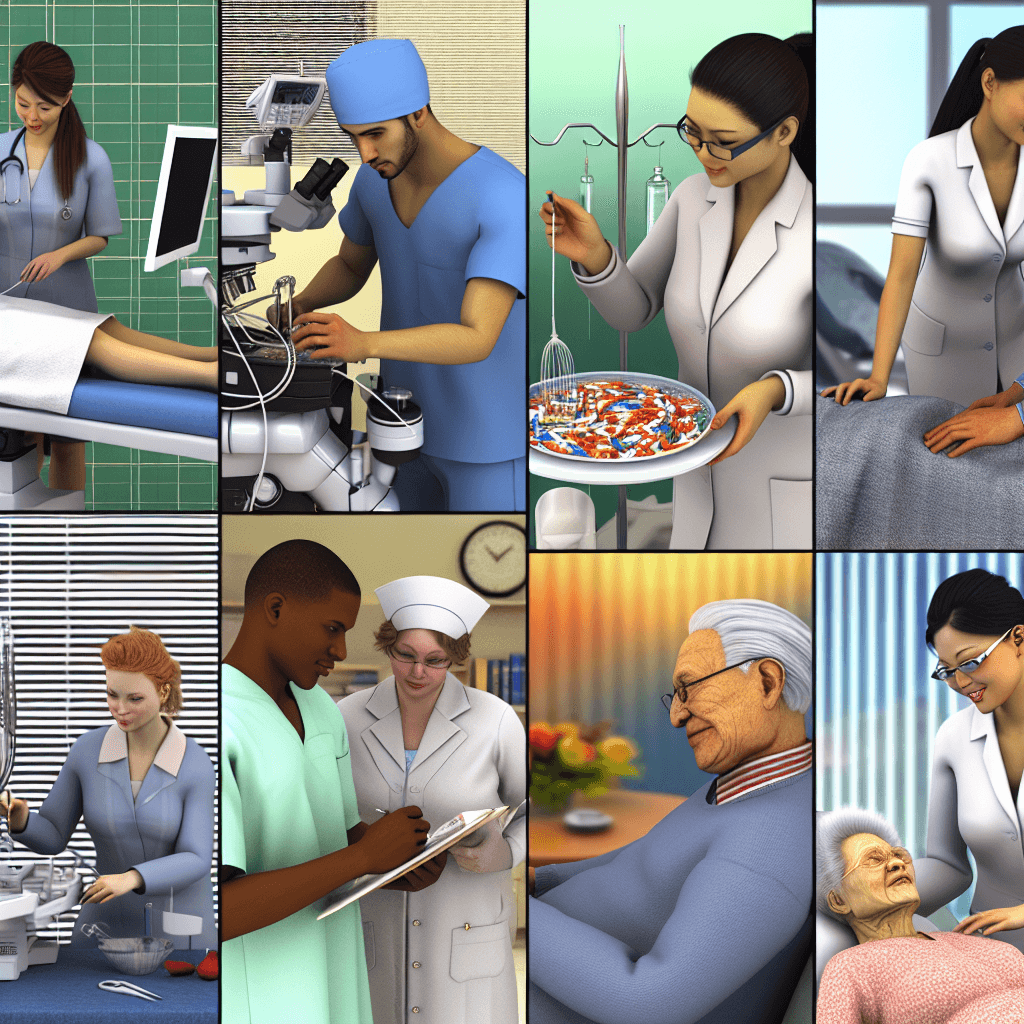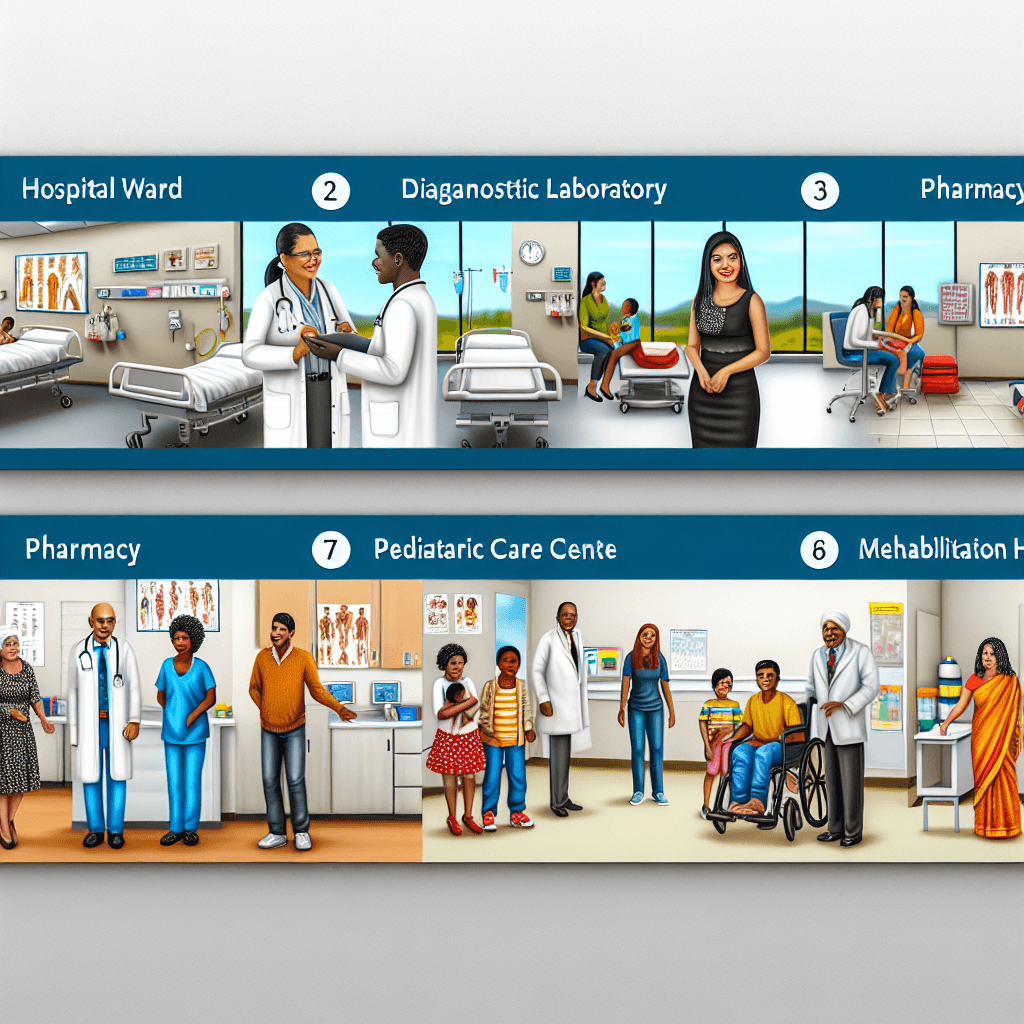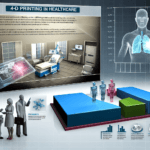Discover the top 7 healthcare services essential for quality care, including preventive, emergency, and specialized treatments.
Top 7 Healthcare Services

Table of Contents
Top 7 Healthcare Services: A Comprehensive Guide

The healthcare sector is a vast and complex industry, encompassing a wide range of services that aim to treat diseases, improve health, and enhance quality of life. In this article, we explore the top 7 healthcare services that are crucial for maintaining public health and ensuring the well-being of communities around the world. Each service is vital in its own right, offering unique benefits and facing distinct challenges. We will delve into the importance of each service, supported by relevant examples, case studies, and statistics.
1. Primary Care Services
Primary care is the cornerstone of healthcare systems globally. It involves the provision of first-contact, accessible, continued, comprehensive, and coordinated care. Primary care providers (PCPs) address a large majority of personal health needs, developing a sustained partnership with patients and practicing in the context of family and community.
- Preventive care including vaccinations and health screenings
- Management of chronic diseases such as diabetes and hypertension
- Diagnosis and treatment of acute conditions like infections and injuries
- Health education and counseling on lifestyle changes
According to a study by the American Academy of Family Physicians, areas with higher concentrations of primary care providers are associated with improved health outcomes, including lower rates of mortality, stroke, and heart disease.
2. Emergency Services
Emergency services are critical in providing rapid medical intervention in life-threatening situations. These services are designed to be highly responsive and are available 24/7 to address severe and urgent health conditions that require immediate attention.
- Trauma care following accidents or violent incidents
- Acute medical conditions such as heart attacks or strokes
- Rapid response to public health emergencies like epidemics or natural disasters
A case study from the Johns Hopkins Hospital showcases the effectiveness of streamlined emergency protocols in improving patient outcomes during critical care situations.
3. Mental Health Services
Mental health services focus on diagnosing, treating, and preventing mental, emotional, and behavioral disorders. These services are essential for enhancing psychological well-being and functionality in individuals suffering from mental health issues.
- Psychotherapy and counseling
- Psychiatric medication management
- Support groups and community services
- Emergency mental health services
Statistics from the World Health Organization highlight that depression is a leading cause of disability worldwide, making the availability of effective mental health services crucial for global health.
4. Maternal and Child Health Services
Maternal and child health services are dedicated to ensuring the health and well-being of mothers and their children. These services are crucial for preventing child mortality and promoting healthy development from pregnancy through childhood.
- Prenatal care and maternal health screenings
- Childbirth and postnatal care
- Immunizations and regular health check-ups for children
A report by UNICEF indicated significant improvements in maternal and child health outcomes in regions with robust healthcare programs focusing on this demographic.
5. Surgical Services
Surgical services are an integral part of healthcare, providing essential interventions that range from minor procedures to complex surgeries. These services are critical for treating specific health conditions that require operative manual and instrumental techniques.
- Elective surgery for conditions like hernias or cataracts
- Emergency surgery for trauma or acute appendicitis
- Reconstructive or corrective surgeries
The development of minimally invasive surgical techniques has revolutionized this field, reducing recovery times and improving patient outcomes.
6. Geriatric Care Services
Geriatric care services cater to the unique health needs of elderly populations. These services focus on improving the quality of life for older adults by managing the various health issues that arise with aging.
- Chronic disease management
- Rehabilitative and palliative care
- Preventive care to maintain mobility and independence
With the global population of individuals aged 65 and older expected to double by 2050, as reported by the World Health Organization, the demand for comprehensive geriatric care services is rapidly increasing.
7. Telehealth Services
Telehealth services have gained significant traction, particularly highlighted by the COVID-19 pandemic, as an effective means to provide healthcare remotely. Utilizing digital information and communication technologies, these services allow long-distance patient and clinician contact, care, advice, reminders, education, intervention, monitoring, and remote admissions.
- Virtual consultations and follow-ups
- Remote patient monitoring
- Mobile health applications for self-management
Studies have shown that telehealth can greatly enhance access to healthcare services, particularly for individuals in remote or underserved areas.
Conclusion
The top 7 healthcare services outlined in this article are fundamental to addressing the diverse health needs of populations worldwide. From primary care to telehealth, each service plays a critical role in enhancing health outcomes, preventing diseases, and improving the quality of life. As healthcare continues to evolve, driven by technological advancements and changing demographics, these services will remain at the forefront of efforts to provide effective, equitable, and accessible care for all.








